Entrepreneur Stories
Spotify Founding Story
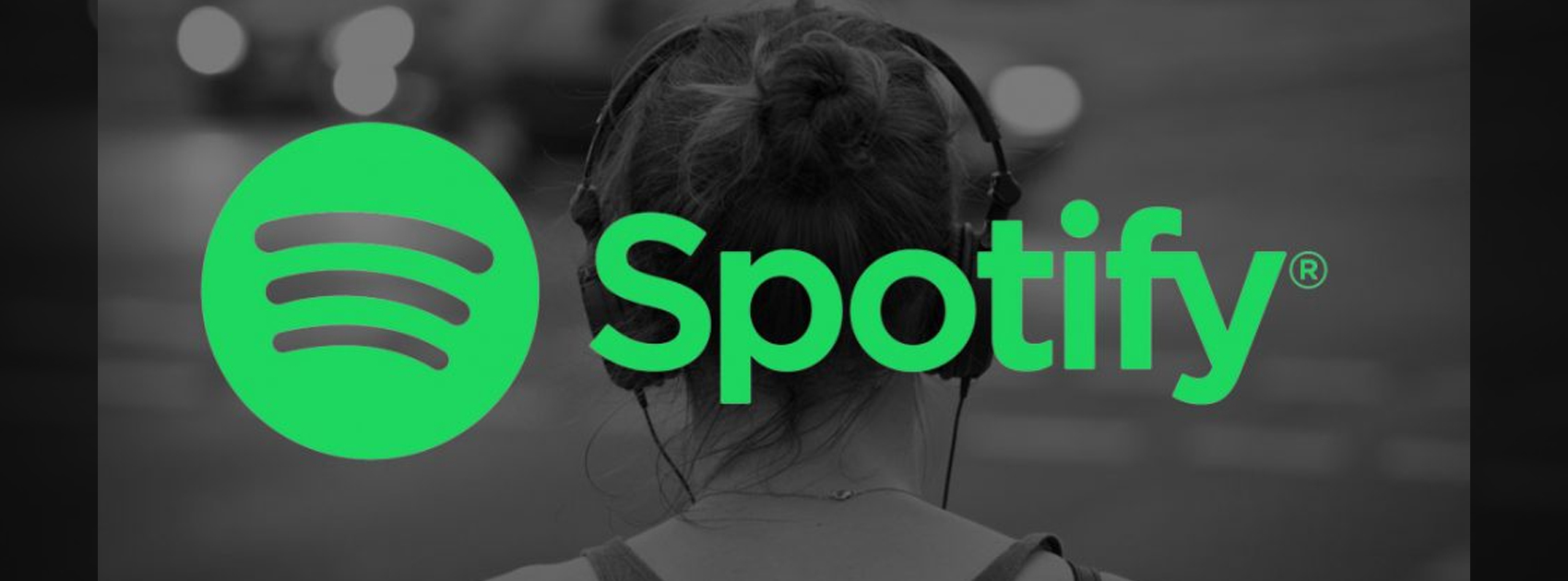
October 2008 witnessed online music being taken to a whole new level with the launch of Spotify. This free music app started with a simple vision of converting millions of pirates who illegally downloaded music to a potential customer base, providing them with a legal service for the same. Little did the founders know this app would take the world by storm and become the go to music application for millions. Keep reading to know how this Swedish music company turned free music into a $ 26 billion dollar fortune.
Where it all began
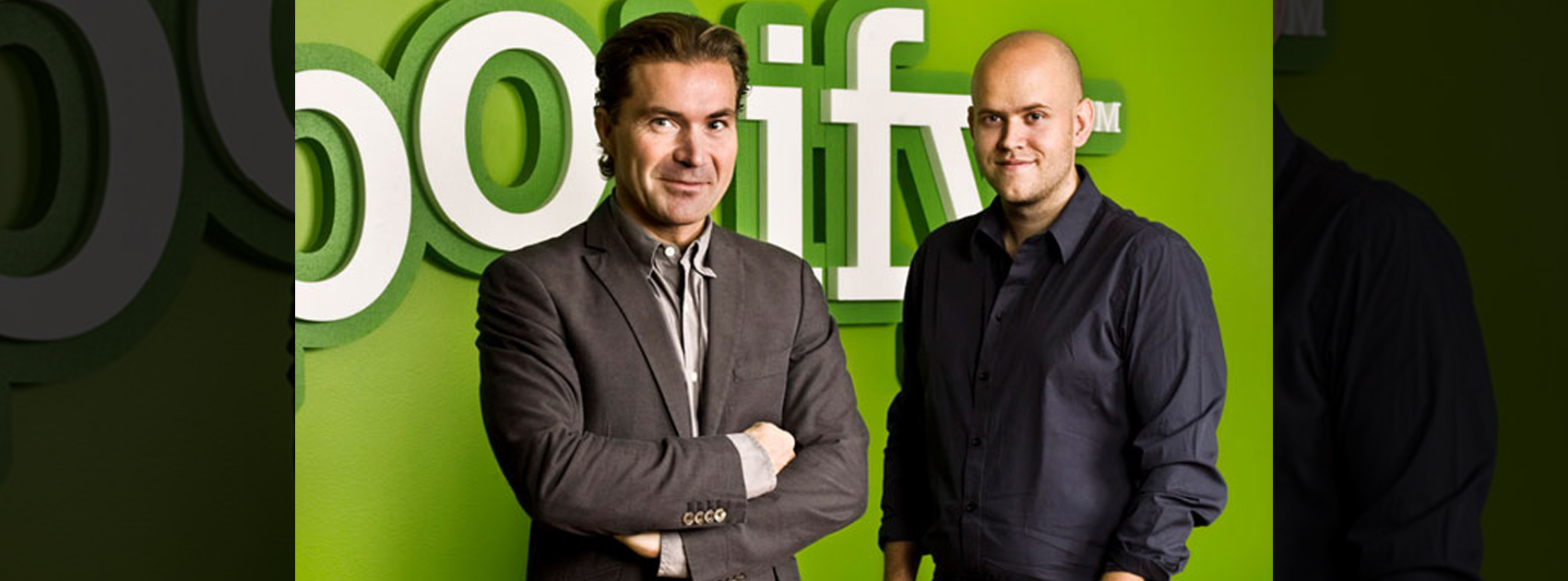
Spotify is the brainchild of Swedish entrepreneur Daniel Ek. Daniel Ek was born in Stockholm on the 21st of February 1983. Ek had a passion for technology since his childhood. At the age of 14, he was already developing web pages for businesses and managed to earn around $150,00 a month. He invested this money into servers where he hosted web pages. In the year 2006, Ek started his own online marketing firm, Advertigo. Despite all this, Ek was looking for something which would give him more than just money—satisfaction.
Back then, Sweden was home to millions of pirates who downloaded and shared music illegally. When the government finally decided to shut that down, Daniel Ek saw a great opportunity to turn these pirates into potential customers and thus began the journey of Spotify.
Ek sold his marketing firm to the Swedish company TradeDoubler and then established Spotify along with Martin Lorentzon, the cofounder of TradeDoubler.
Initial developments and struggles
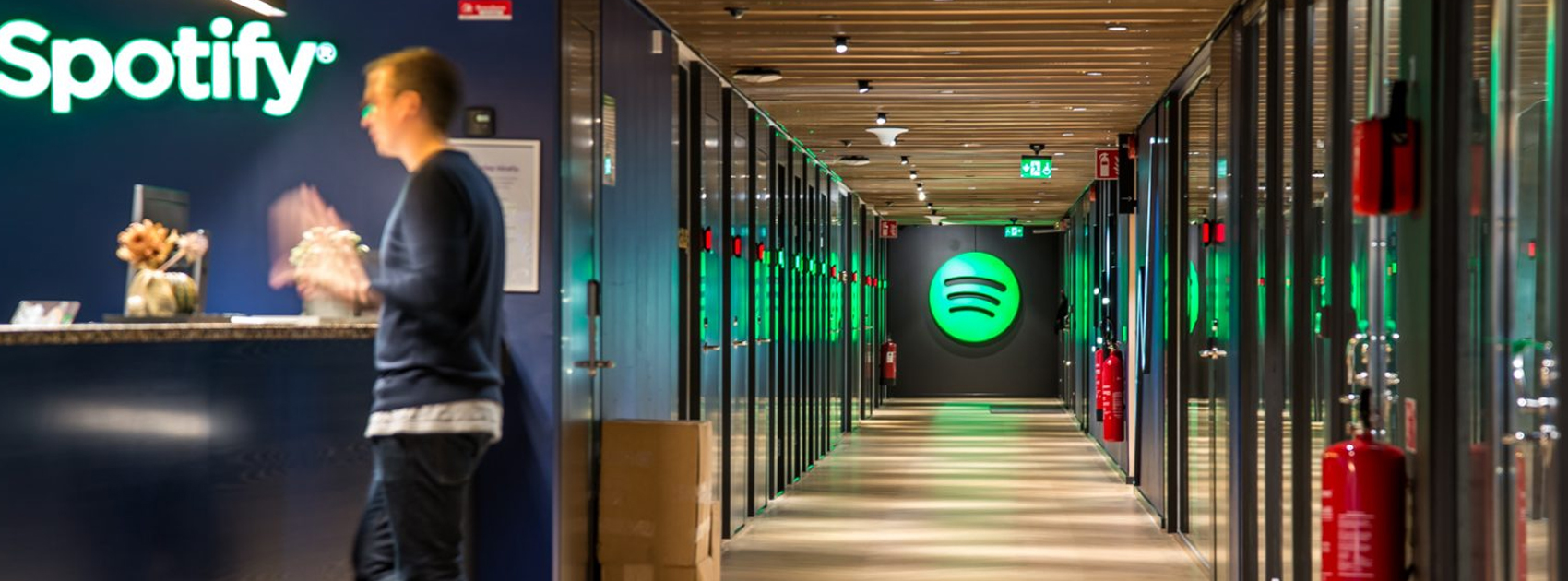
Spotify’s development began in the year 2006 by Daniel Ek, Martin Lorentzon and a team of people at Spotify, in Sweden. According to Daniel Ek, the Company’s name is a combination of the two words “spot” and “identify”.
In the beginning, the music industry showed very little interest in Spotify, as its idea to stream free music earned the industry far less revenue when compared to other paid services such as iTunes. For this reason, it became extremely difficult for Ek and Lorentzon to get investors on board for the project. All these limitations, however, could not stop them. The Spotify development team was finally able to launch the official application by 7th October 2008.
From an idea to a billion dollar entity
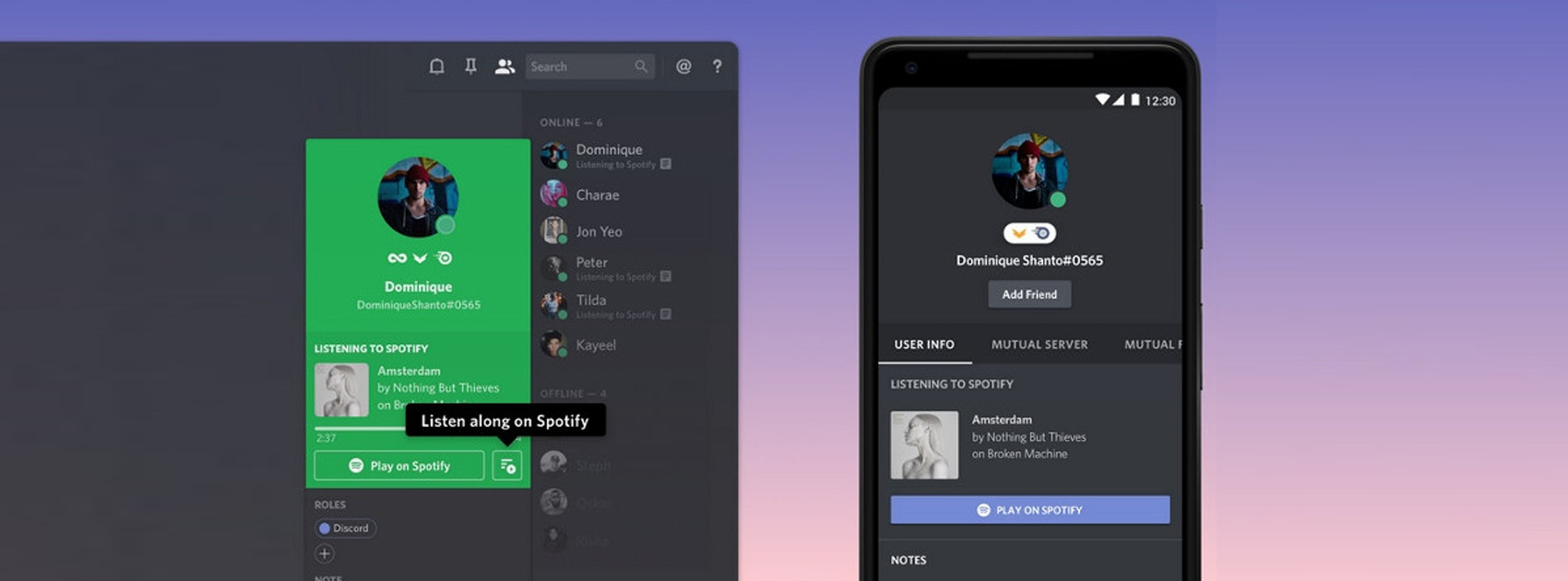
After the launch of the app, Spotify was unstoppable. Within a short span, the app gained immense popularity, both among users and investors. In 2009, Spotify won the backing of Facebook when Mark Zuckerberg took to his social media and wrote “Spotify is good.” By 2010, the market value of Spotify increased to be $ 4 billion. In 2011, Spotify launched its services in the United States and allied with Facebook. The user base of Spotify quickly grew to 5 million active users by the end of that year. In 2012, Spotify had 18 billion tracks and 20 million users. Over the years, top artists started collaborating with the streaming and Spotify started spreading its wings to the U.S.A., New Zealand, Australia and parts of Africa and Asia. As of April 2019, Spotify provides access to over 40 million tracks and has over 200 million users, more than 100 million of whom pay for the service.
Future scope of Spotify
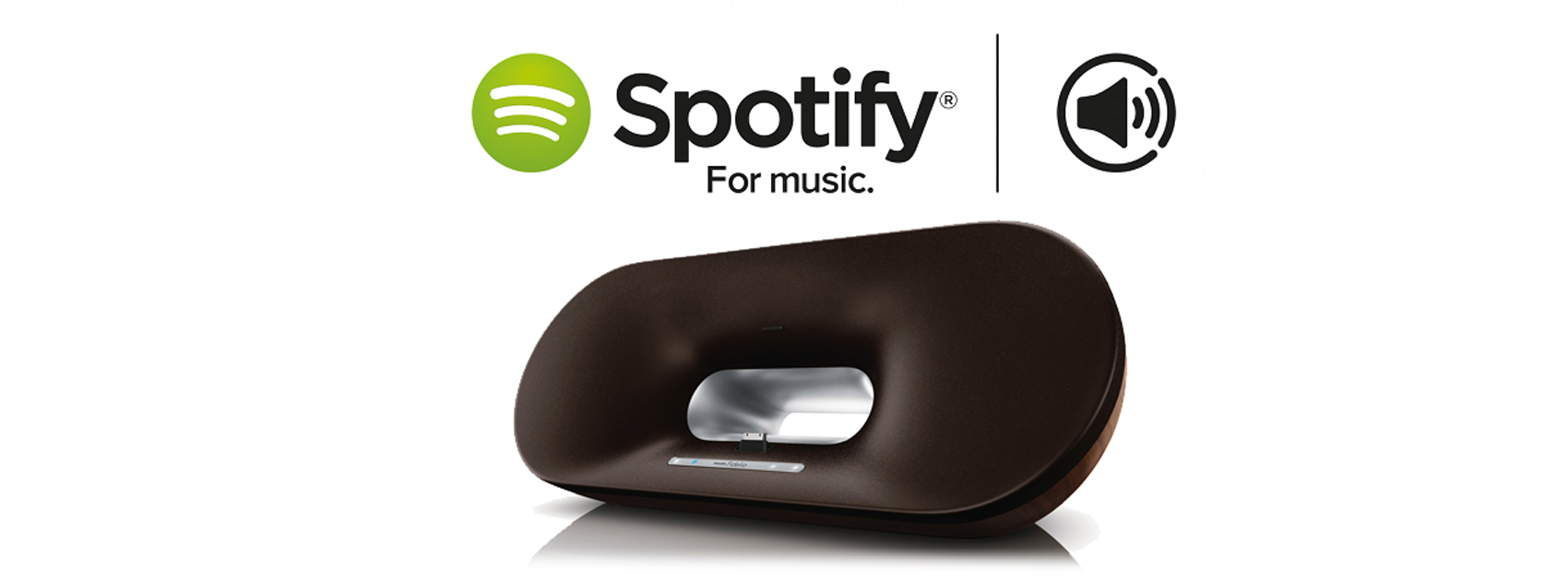
At present, Spotify has to rely on speakers made by Apple, Amazon and Sonos, but recent reports suggest that Spotify is working on its own voice assistant and smart speaker. This smart speaker could prove to be a rival for Amazon’s Alexa.
Ten years ago, Ek made an assumption, people who go against the law to download music could as well pay a small fee to stream music in a legal way. This assumption of his proved to be true and today, one among the most used apps in the world.
Daniel Ek and Martin Lorentzon proved to the world, with passion and hard work, no goal is too far. Every entrepreneur can definitely learn something by looking at Spotify’s decade long journey.
Videos
T.N. Seshan: The Fearless Reformer Who Redefined Indian Democracy

T.N. Seshan’s name stands tall in India’s history as the man who transformed the nation’s electoral system with extraordinary courage and integrity. Born in 1932 in Kerala, Seshan grew up with values of discipline, education, and service to the nation — virtues that shaped his illustrious journey. From his early brilliance at Madras Christian College to his advanced studies in public administration at Harvard University, Seshan’s path reflected rare determination and intellect. Joining the Indian Administrative Service in 1955, he built a reputation as a no‑nonsense officer committed to efficiency and honesty, serving in key roles such as Secretary of Defense and overseeing vital national programs.
As the Chief Election Commissioner of India in 1990, T.N. Seshan sparked a new era of electoral integrity. In a system once marred by corruption, violence, and malpractice, Seshan brought order, fear, and respect through his groundbreaking reforms. He introduced voter ID cards, imposed strict spending limits on campaigns, and insisted on transparency at every level of the election process. Despite criticism from political circles that labeled him dictatorial, his relentless pursuit of fairness empowered every citizen to vote fearlessly. Under his leadership, the Election Commission became a symbol of strength and integrity in Indian democracy.
Seshan’s passing in November 2019 marked the end of an era, but his message continues to resonate across generations. Leaders from every corner of the country mourned the loss of the man who restored faith in free and fair elections. His enduring legacy reminds us that true leadership lies not in wielding power, but in serving people with honesty, courage, and conviction. T.N. Seshan’s life remains a timeless inspiration a reminder that democracy thrives only when its citizens are vigilant, responsible, and fearless.
Entrepreneur Stories
Indian Man Quits JPMorgan, Takes 70% Pay Cut to Launch $6 Million Startup

Leaving behind a high-paying job at JPMorgan, an Indian entrepreneur embraced a 70% salary cut to pursue true purpose and passion in the startup world. Disenchanted with what he described as a “robotic” corporate routine, he sought meaningful work that made a real impact. This pivotal decision marked the beginning of his new journey, one focused on value creation rather than titles and corporate perks.
Powered by resilience and fresh perspective, the entrepreneur launched his own startup, prioritizing innovation and hands-on solutions. The road was challenging, but his vision resonated with the market: the startup quickly gained traction and raised $6 million—an impressive acknowledgement of its potential in a competitive landscape. Every hard lesson from early setbacks and bootstrapping paid off in real customer growth and investor confidence.
Today, his journey stands as an inspiring example for professionals seeking authentic success outside the corporate grind. By trading comfort for creative freedom, he grew a venture that solves important problems, generates jobs, and builds wealth beyond just salary. For ambitious founders, his story highlights the power of risk-taking, adaptability, and relentless focus on impact in India’s thriving startup ecosystem.
Videos
Larry Page: The Visionary Co-Founder Behind Google’s Global Success
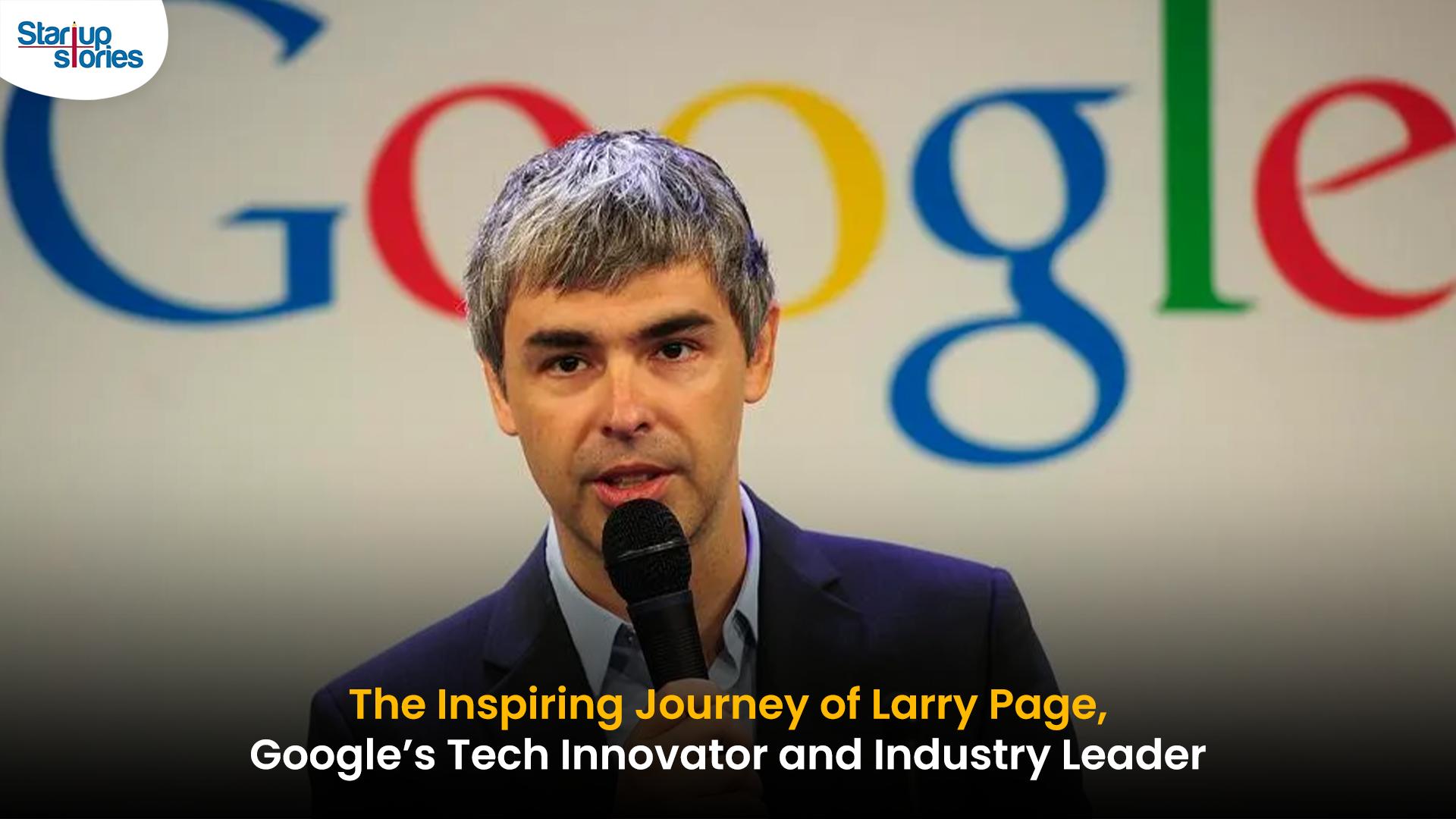
Larry Page is a visionary technology entrepreneur and co-founder of Google, one of the world’s most influential companies. Born in 1973 in Michigan, Page grew up surrounded by computer technology, which inspired his passion for innovation from an early age. He studied computer engineering at the University of Michigan and later pursued his PhD at Stanford University, where he developed the revolutionary PageRank algorithm with Sergey Brin. This technology fundamentally changed the way search engines rank websites, making Google the most accurate and popular search engine globally.
The journey of Larry Page and Google began in 1998 when they officially launched the search engine from a small garage. Leveraging their unique algorithm, Google quickly surpassed competitors due to its ability to deliver highly relevant search results, transforming internet search forever. Under Larry Page’s leadership as CEO, Google expanded beyond search to launch groundbreaking products including YouTube, Gmail, and Google Maps, turning it into a global tech powerhouse that shapes how we access and interact with information online.
Larry Page later became the CEO of Google’s parent company, Alphabet Inc., driving innovation and investment in next-generation technologies such as artificial intelligence, autonomous vehicles, and healthcare solutions. His visionary leadership and commitment to technological advancement have cemented his legacy as one of the most influential figures in the tech industry. Today, Larry Page remains a key influencer in shaping the future of technology and digital innovation worldwide.













GO88
November 5, 2025 at 8:51 pm
Tham gia cộng đồng game thủ tại Go88 để trải nghiệm các trò chơi bài, poker phổ biến nhất hiện nay.
MM88
November 5, 2025 at 9:55 pm
Khám phá thế giới giải trí trực tuyến đỉnh cao tại MM88, nơi mang đến những trải nghiệm cá cược thể thao và casino sống động.
站群程序
November 8, 2025 at 3:23 am
搭载智能站群程序,自动化搭建与管理,为SEO项目提供核心驱动力。站群程序
ios超级签
November 8, 2025 at 9:11 pm
苹果签名,苹果超级签平台,ios超级签平台ios超级签苹果企业签,苹果超级签,稳定超级签名
站群程序
November 11, 2025 at 6:13 pm
搭载智能站群程序,自动化搭建与管理,为SEO项目提供核心驱动力。站群程序
J88
November 12, 2025 at 1:42 am
Đến với J88, bạn sẽ được trải nghiệm dịch vụ cá cược chuyên nghiệp cùng hàng ngàn sự kiện khuyến mãi độc quyền.
MM88
November 14, 2025 at 2:40 am
Với giao diện mượt mà và ưu đãi hấp dẫn, MM88 là lựa chọn lý tưởng cho các tín đồ giải trí trực tuyến.
iwin
November 19, 2025 at 11:18 pm
iwin – nền tảng game bài đổi thưởng uy tín, nơi bạn có thể thử vận may và tận hưởng nhiều tựa game hấp
Kuwin
November 29, 2025 at 4:00 pm
kuwin sở hữu kho game đa dạng từ slot đến trò chơi bài đổi thưởng, mang đến cho bạn những giây phút giải trí tuyệt vời.
Playfina Casino Bonus ohne Einzahlung
December 21, 2025 at 8:03 pm
Schauen Sie sich die Angebote in Ruhe an und entscheiden Sie dann, welches Casino Ihnen am meisten zuspricht
– sei es aufgrund des Bonuswerts, der Spielauswahl oder der Performance.
Wir testen regelmäßig neue Casinos und überprüfen bereits
getestete Anbieter monatlich, um Ihnen stets die aktuellsten und verlässlichen Informationen bieten zu können. Unser Team besteht aus mehr als 15 Casino Experten, die regelmäßig
Online Casinos Tests durchführen, um die besten Anbieter für Sie zu finden. Unser Expertenteam analysiert den österreichischen Glücksspielmarkt kontinuierlich auf neue Online-Casinos und überprüft
bestehende Anbieter auf Verbesserungen im Spielerlebnis.
BingBong beispielsweise bietet neuen Spielern einen 100% Bonus bis zu
100 € und 50 Freispiele. Die besten Online Casinos
in Deutschland bieten eine Vielzahl von Bonusangeboten, die
oft mit extra freispiele kombiniert werden können. Ob Sie nach den besten Online Slots,
den Top Live Casino Anbietern oder den besten Boni und Freispielen suchen – es gibt für
jeden etwas.
Ein qualitativ hochwertiges Online Casino sollte eine breite Auswahl an Spieltypen, einschließlich Spielautomaten, Tischspielen und
Live-Casino-Angeboten, bereitstellen. Die benutzerfreundliche App von Casino Infinity ermöglicht es den Spielern, bequem von unterwegs aus
zu spielen und ein angenehmes Spielerlebnis zu genießen.
Die benutzerfreundliche App ermöglicht es Ihnen, bequem von unterwegs aus zu spielen und beinhaltet alle Funktionen der Desktop-Version.
References:
https://online-spielhallen.de/bruno-casino-aktionscode-ihr-schlussel-zu-besonderen-vorteilen/
top rated online roulette
December 27, 2025 at 7:52 am
Gamblers like bonuses and online gambling sites know that. What Casino-Mate
offers is a much more diverse collection of games from a range of software developers that
are pushing the envelope to create fresh and unique content
away from the tired Microgaming titles. This gets a thumbs down from us, as it
is very rare for an online casino to charge a fee for processing deposits.
On embarking on their adventure, new players are
warmly greeted with an enticing welcome package,
which often includes a generous deposit bonus and plenty of free spins.
Casino Mate’s mobile platform offers the full desktop experience in your pocket.
Streamed in HD, live games include Blackjack, Roulette, Baccarat,
and Poker, offering real interaction and excitement.
References:
https://blackcoin.co/fastpay-casino-quick-secure-and-rewarding-gaming-experience/
www.govconnectjobs.com
December 29, 2025 at 9:28 am
paypal casino canada
References:
http://www.govconnectjobs.com
careerjungle.viakasi.co.za
December 29, 2025 at 9:36 am
online casino with paypal
References:
careerjungle.viakasi.co.za
https://04civil.com/
December 30, 2025 at 2:23 pm
online real casino paypal
References:
https://04civil.com/
exelentsmart.com
December 30, 2025 at 2:41 pm
online casinos paypal
References:
https://exelentsmart.com/employer/best-australian-casino-sites-2025-aussie-online-casinos/